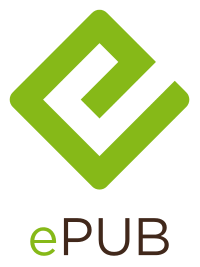Got Choices?

Free Education
So far we have discussed education in a rather practical sense. For example, how can we improve quality and choices for people, within the context of current established norms and expectations.
But we could take a much larger step forward if only we could rid ourselves of the shackles of conventional thought and assumptions. Let us try thinking “outside the box” for a moment, and imagine how education might work in a society built on the principles of choice and opportunity for all.
We will start by restating a question many are asking in our current political dialog: “what if education could be free for everyone?” That sounds great, doesn’t it!
After all, we live in a free country. So certain important things should be free, right?
This is where the word “free” can get us into some trouble, because at least in English, it really has more than one meaning. There is “free”, in the sense of not costing anything, or free from cost. And then there is another kind of free, as a bird is free, or a prisoner is set free. This kind of free means free from bondage, or oppression.
Oddly, these two kinds of free-ness are not only very different, but in certain situations, are even mutually exclusive! For example, if you think you should get everything free of cost, you will probably have to oppress some other person to make that happen. And if everyone is to be free from oppression, most things will probably not be available without a cost.
As we have discussed, this stems from the fact that we live in a world of entropy, where people have to work to produce most of the things they need. So in a society free of oppression, no one has a right to a heart transplant, a foot massage, or even a lecture on English literature. All those things require the cooperation of other people to provide. So if one person has a right to get them for free, some other person must be forced to produce them, without compensation.
A true right, an inalienable right, should be the kind of thing you can enjoy without having to infringe on the rights of others. And in our traditional paradigm, education has typically been the kind of thing you have to get from other people.
Education typically means school. And school happens in a classroom, in a building, with a teacher, desks, text books, lectures and so forth. All those things require human effort to produce, so we can’t all have them for free.
But that doesn’t mean education can’t be free–especially if you are thinking about the right kind of “free.” Education can be free of oppression, it can be something freely accessible by all, without force or coercion. But we have to consider a new paradigm, a fresh way of thinking about it.
Information on practically any topic is now available, essentially for free, on the Internet. This is an example of how technology has created a new opportunity for increased choice and a new and better way of doing things.
Sometimes people willingly donate their time and energy to publish helpful information on a variety of topics. Other people have found they can publish useful information and earn money from advertising shown in conjunction with their content. But the information is there. It is easily accessible, And it is growing by the day.
Want to learn how to change your own oil, or even rebuild your engine? Look it up on the Internet! You will probably find a step-by-step tutorial, showing you everything you need to know.
But it doesn’t end there. You can find lessons and tutorials on everything from gardening to brain surgery. A motivated learner could learn practically anything, just by seeking out that knowledge and committing it to memory.
This kind of education is all the right kinds of “free.” It is free of oppression, and nearly free of cost! All you need is a little desire and the ability to get connected and you can access a world of information on any topic that may interest you.
Many people are taking advantage of this wonderful resource to improve themselves and find new opportunities. More and more parents are choosing to educate their children themselves. And adults too can find ways to educate themselves using online advanced educational resources.
But there are still a few barriers to realizing the full potential of free education. As is nearly always the case, those barriers exist mostly in the form of big business and/or big government.
Under the current paradigm, there are certain realities you must face if you want to become qualified in a given field of study:
- You may have to graduate from a school or academy, with a degree in your chosen field.
- Your school may have to be accredited in that specific field.
- Accreditation is typically controlled by professional associations consisting of those who are already enjoying profitable employment in that field.
- Government often supports this monopolistic structure by forcing people to obtain licenses, which may include requirements for a degree from an accredited educational institution.
So if you want to be a doctor, you have to go to one of the medical schools existing doctors have deemed acceptable. In most states, a similar situation exists for lawyers. To one degree or another, we are stuck in a similar line of thinking, whether you want to be a teacher, a scientist, or a hair stylist.
Wouldn’t it be interesting if, rather than caring what school was lucky enough to earn your over-priced tuition, we instead focused on what you have actually learned about the relevant subject? This could easily be accomplished by shifting to a new paradigm–one where knowledge, experience and achievement are the true objectives.
- You would be free to attend a school of your choosing, whether accredited or not.
- You would also be free to obtain your knowledge on your own, at the library, through the Internet, or by practical experience, such as an internship or apprenticeship.
- Professional associations could design and administer their own qualification tests and experience criteria.
- There would be room for multiple standards, each published and administered by a separate competing association.
- Your primary obligation as a practicing professional would be to fully inform your clients as to which standards you have, or have not qualified for.
- You might also be asked how recently you had passed such a qualification.
- Then, the customer could make his own decision about whether he considers you qualified.
As a practical example, imagine you want to seek a kind of medical treatment that is not approved by the American Medical Association or FDA standards. Maybe you are more comfortable with a doctor who qualified under the Chinese Medical Association or the North American Society of Homeopaths. Shouldn’t you be allowed to decide for yourself? What business does the government or the AMA have in limiting your choices?
Maybe you haven’t attended law school, but you have worked as a law clerk and a paralegal for 10 years. In the course of your work and individual study, you have learned enough about the law to pass the bar exam in your state. Shouldn’t that be enough? As long as your customer is fully informed, and free to make his own choice, there is no reason why government should get in the way of the two of you exchanging your labors with each other.
These principles apply to much more than just doctors and lawyers. Any discipline, from engineers to accountants and secretaries, could seek their training by practical and independent means as well. Employers ultimately should not care so much whether or not you paid tuition at a fancy over-priced college. Rather, they should be more interested in how productive you can be in your job.
There are other benefits to this genuinely free approach as well. Say for example, your doctor tells you he attended Harvard Medical School. Sounds good, right?
But what if he graduated 50 years ago and hasn’t had much formal training since? Many new procedures and treatments have come along in that time. If he has gone to the trouble to keep himself current, he may still provide a good service. But if he has not, you may not be getting the best value for your money.
If instead, we focused on what a person knows, and how recently he has submitted himself to independent qualification testing and assessment, we would have a much better idea of how skilled and talented that person is likely to be.
How do we get from where we are, to this new way of thinking? To start, we need to remember the truth about government regulation: regardless of its intent, the result of such regulation is to protect those already entrenched in centers of power and profit from smaller competitors who wish to enter the space. In the end, this is not good for consumers. So we need to resist the urge for ever-increasing government rules and regulations.
Then as consumers, we need to become committed to the principle of authentically free education. Not free, like a free lunch, or a free ride. Rather, free from the bonds of oppressive rules and regulations imposed by oversized government or the monopolies it fosters.
It may take a new generation of young people who figure out they are not being served by the existing “big education” cartel. Maybe they will get tired of submitting to the system, and incurring its oppressive cost and resulting debt. Instead of seeking a college diploma, maybe they will instead seek a higher education, on their own, by studying available on-line courses and lectures.
This group of brave, new pioneers in education may have to fight a little harder for acceptance when applying for traditional employment. But if they are committed, they can do it. They just have to prove, by results and by what they have learned, that they can do the job.
Many self-taught achievers may choose to make their own job, starting their own business so they don’t have to prove anything to a prospective employer. But the point is, you don’t need a diploma to achieve. You need knowledge, information and experience. And you need a passion, a willingness to work for what you want to accomplish.
Once this trend begins to catch on, professional associations can begin to get in gear. They can publish and administer their own tests and evaluations, meant to accurately determine an individual’s skill and talents. Employers will eventually learn to depend on such objective measures, rather than the more subjective ones they use today. Gradually, we can move to a world where what you know matters more than who you know!
Yes, education should be free–authentically free–just as every other pursuit of happiness we may choose. We don’t need government, nor any other powerful monopoly to tell us how or where we may obtain it.
